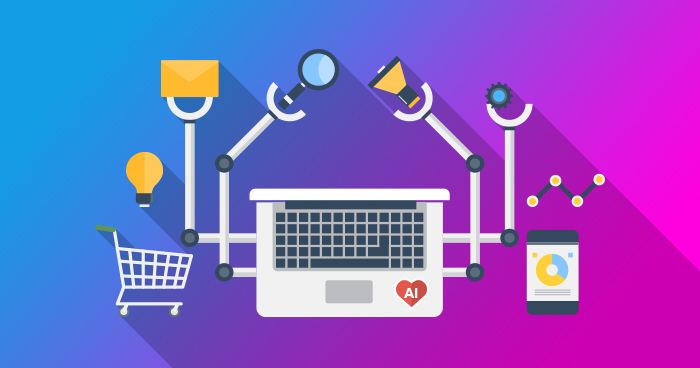Trend Radar 2020: How AI Changes E-commerce
Written by
Editorial TeamPublished on

Pforzheim, January 8, 2020: E-commerce continues to advance and evolve rapidly, pushing the boundaries in this still young, budding industry – especially in the B2B sector. What influence do technology trends like AI and voice search have? Carsten Kraus, Managing Director of Omikron Data Quality GmbH, takes a look at the developments and changes that the year 2020 will bring for e-commerce companies.
Adaptive Pricing and Inventory Predictions: In the Future, the Machine Negotiates
Artificial intelligence (AI) is a cross-sectional technology that will change the economy, our privates lives and ultimately the whole of society – similar to electricity or the internet in the not-so-distant past. This change is happening faster than predicted and affects every company, worldwide and across industries. AI processes are already finding a wide range of applications in the purchasing and sales departments of companies. This applies, for example, to inventory forecasts, which can be vastly improved with the help of AI versus traditional methods.
With regard to sales, Adaptive Pricing can be implemented – a measure that is particularly relevant for B2B companies in order to determine more precise prices for each customer individually. If there are already many interactions with the customer, AI can assess how price flexible the customer is or whether there are other factors that are more relevant to them. Results could include factors such as increased upselling of warranties or selling at a higher margin while maintaining satisfaction.

B2C Voice Commerce Has No Breakthrough In 2020
Last year, more than ten percent of households in Germany had a voice assistant such as Alexa. 33 percent of Germans have already used this technology to find out about the weather, football results or the opening hours of restaurants and shops. However, people rarely order and buy in this way. This is because information can only be sent and recorded one after the other via the voice channel, but comparisons – between two similar products, for example – need to be made side by side. Additionally, accessibility and visual support are lacking – without pictures, videos, or even a basic layout of an online shop, customers lack the confidence to complete purchases.
In short: voice is sequential, choice is parallel, and therefore voice commerce will not be able to replace the online shop for the time being. In order for voice commerce to become a real competitor for the online shop, it would need a back channel like AR glasses, a built-in screen or maybe just the smartphone. However, until these devices are sensibly linked, Alexa’s shopping basket will often remain empty.
AI Is the Most Important Short-term Factor For Increased Sales in B2B
In 2020, artificial intelligence (AI) will fundamentally change the purchasing process in industries where it is common practice to order the same products over and over again. This is the case, for example, with food orders in restaurants, or material orders of production companies. In the future, the “Predictive Basket” will predict to the customer what he wants to buy in his current session.
The AI suggests products based on historical customer behaviour as well as on the purchasing behaviour of other customers. It learns the buying patterns, adapts seasonal characteristics and optimizes its own suggestions on an increasingly individual level. Our research shows that AI-supported algorithms in e-commerce today already achieve a hit rate of up to 75 percent, enabling B2B customers to complete their purchases in one third of the time.
Purely Brick-and-mortar Is Threatening to Fall Behind for Good
The greatest strength of e-commerce lies in the collection of data. Not only the customer data itself is valuable, but also surveys about single interactions. All of this combined can serve as a kick-start for future business models.
This data makes it possible to inspire the customer in the interest of both parties, to automatically make suitable suggestions, to keep stocks up-to-date or to define specific prices. If the stationary trade does not want to be left behind, it must collect data and invest in AI expertise. This is the only way to even come close to compensating for the strategic lag behind e-commerce competitors.
About Omikron Data Quality GmbH
Omikron Data Quality GmbH is one of the leading German technology providers in the areas of data quality and e-commerce. With its own patented algorithms in the areas of search technology and artificial intelligence, Omikron Data Quality GmbH supports companies and retailers in making digital change future-proof.
Omikron Data Quality GmbH operates in two business areas: The business unit Fact-Finder optimizes the customer journey in e-commerce through AI-supported, self-learning technologies within the online shop. The business unit Data Quality supports companies in making their data fit for digital change.
The company’s in-house research department develops disruptive approaches in AI and machine learning, which result in products for a constantly changing market. The company employs more than 150 people at its locations in Pforzheim and Berlin. Further information is available at www.omikron.net and www.fact-finder.de.


